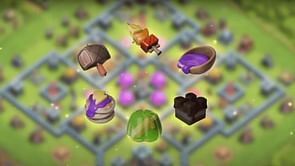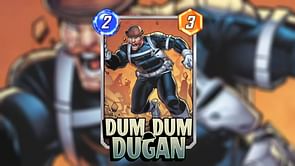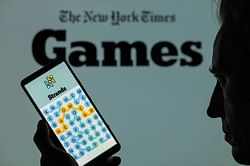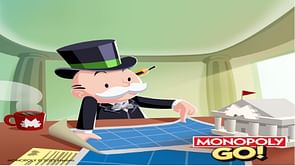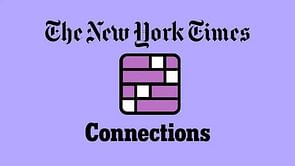
The Origins of Word Puzzles: Where It All Began
While the crossword only dates back to the 1913s, word puzzles have ancient roots as some of them date back to the Roman civilization. That is evidenced by the Sator Square found in Pompeii which dates to the 1st century CE. A five-by-five word square, it’s considered to be one of the earliest word puzzles with their popularity only growing in the centuries since. Crosswords, as mentioned before, were created in 1913 by a British journalist for the New York World newspaper.
Word search games, on the other hand, were only created in the 1960s despite their simple design and format with them first appearing in Oklahoma. Since then, various versions of word search puzzles have risen to the surface with even several variations of word games making their mark. However, cryptograms are considered to be even older than the crossword and one of the oldest word games in existence.
Research has shown that monks in the Middle Ages were credited with using them for entertainment much before Edgar Allan Poe made them popular in newspapers and magazines.
The Rise of Crossword Puzzles: The 20th Century Boom
Invented by Arthur Wynee in 1913, the rise of the crossword has been quick and immense with it quickly spreading across by the world before the end of the First World War. By the 1920s, Simon & Schuster had published a book of crossword puzzles which led to an even bigger boom in popularity. The craze infiltrated every aspect of life from the regular to inspiring fashion trends, Broadway plays, music, and more.
So much so, that even libraries saw an increased level of foot traffic as solvers began looking for reference and learning material to improve their vocabularies. But even then, some newspapers and people viewed them as a waste of time until the start of the Second World War which changed perspectives. That saw the New York Times introduce their now infamous crossword puzzle, and they soon set the industry standards for quality and engagement.
Thus as a result, by the mid-20th century, crosswords had become a regular occurrence in almost every newspaper or magazine in the world.
Anagram Puzzles in History: Their Use in Language and Literature
Anagram puzzles have a rich and interesting history that dates back all the way to both the ancient Greek and Roman civilizations. Both used anagrams for wordplay and divination, with them appearing as early as 300 BCE. That trend continued in the Middle Ages as European religious orders used to create anagrams for biblical phrases to turn them into various statements.
Renaissance writers also did the same but they did it to express political ideas without being censored or persecuted during the time. They gained popularity in the 16th and 17th centuries with Thomas Billon even appointed as "anagrammatist to the king" in France. That continued in literature and novels as well with both Vladimir Nabokov and Lewis Carroll using them liberally.
Carroll especially is renowned for how much he loved anagrams and his use of them in his short stories, conversations, and more. Even JK Rowling employed anagrams in her famous Harry Potter series to reveal Lord Voldemort's true identity.
If you're stuck on an anagram, try our Word Unscrambler to assist you.
The Digital Revolution of Word Puzzles: From Newspapers to Apps
The digital revolution has changed not just the way the world operates but also the way word games operate even though it faced resistance from traditionalists. However, by the early 21st century, as technology advanced at a rapid rate, many newspapers and publications started taking things online. The New York Times became one of the first to publish a daily crossword online and their mobile app has since set the standards for user interface, features, and more for a word-game application.
That’s because the advent of digital puzzles brought about serious change within the word-game universe thanks to the freedom it offered constructors, app and website creators, and players. It allowed the introduction of various feedback systems, global accessibility, scoring mechanisms, and more as well as the ease to carry thousands of puzzles in a player’s pocket. It has only enhanced engagement and the learning experience for many, which has led to a further boom in popularity in the early 2020s.
How Word Puzzles Impact Language and Literacy
Word puzzles have a significant impact on a person’s language and the way their linguistic skills develop as they age. That especially applies to children and young adults as research has shown that playing puzzles like crosswords, word searches, and more helps develop, enhance, and retain vocabulary at a much faster rate. This is thanks to the repetitive nature of such word games which helps create word associations by forming new pathways in the brain.
They do this with a simple format that is both engaging and challenging at the same time while improving their understanding of the word or concept. Furthermore, word puzzles also tend to have an unexpected social element, especially in an educational setting. This helps promote and improve communication skills, reinforces previously taught topics, and more while serving as an effective revision tool.
The Future of Word Puzzles: Trends in AI and Online Games
Thanks to the advent and creation of artificial intelligence (AI) writing tools, the future of word puzzles is being shaped by AI. AI-powered games have already been created and roam the internet with Promptordle the most popular one out there at the moment. It offers a dynamic experience for each user as the game tailors the experience and adapts to each player. Not only that, it integrates interactive riddles which has helped build the community rapidly over the course of the last few years.
Generative AI is being used to create narrative content, provide tougher clues, and help make the development stage more streamlined. However, even then, the industry is in its nascent stage at the moment with word games still being constructed by human beings. But expect that to change in the near future especially with AI technology improving leaps and bounds on a daily basis.
Conclusion: The Timeless Appeal of Word Puzzles
There’s a reason that word puzzles have maintained their appeal and presence across centuries, with that being thanks to their unique blend of entertainment and cognitive stimulation. They offer something few other modes of entertainment can match as research has shown that playing word puzzles daily can improve problem-solving skills, enhance vocabulary, and even slow cognitive decline.
Combine that with an almost effortless adaptation across formats, from print to digital, and it has allowed word puzzles to thrive even in the modern age. Not just thriving in an age that depends on social media, they’ve offered players a different way to connect and form communities. This is evidenced by the fact that several publications have spent millions of dollars buying word games over the last few years, thanks to a boom in popularity. That trend doesn’t seem to be slowing down even if it has plateaued in recent years and all facts point towards it rising again.
